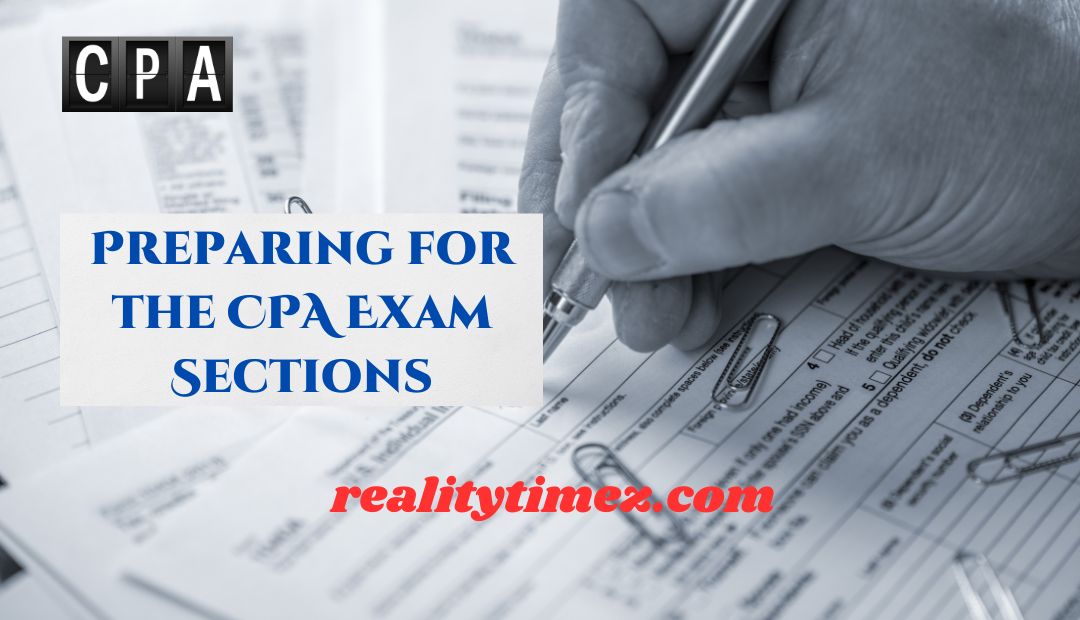CPA Exam – The Certified Public Accountant (CPA) exam is one of the most challenging professional exams. This exam tests a candidate’s knowledge, skills, and ability to perform the tasks required in the accounting field. To succeed, candidates must understand the process, prepare effectively, and manage their time wisely. This guide provides a step-by-step overview of the CPA exam process, from eligibility to preparation and finally taking the exam.
1. Understanding the Requirements for the CPA Exam
Before embarking on becoming a CPA, it’s crucial to understand the eligibility requirements. Generally, candidates need a bachelor’s degree in accounting or a related field, and some states require a certain number of credit hours in accounting and business courses. It’s important to check specific state requirements to ensure eligibility.
Additionally, some jurisdictions may require work experience under a licensed CPA, while others might have educational requirements beyond a bachelor’s degree. Understanding these requirements early on can help candidates plan their education and work experience accordingly.
2. Applying for the CPA Exam
Once eligibility is confirmed, the next step is to apply to take the exam. The application process varies by state, but generally, it involves applying to the state board of accountancy. This includes providing proof of education, transcripts, and other required documents.
After applying, candidates must receive a Notice to Schedule (NTS) from the state board. The NTS is a crucial document that allows candidates to schedule their exam dates. It is vital to keep track of the NTS and its expiration date, as it dictates when the exam must be taken. Proper planning during this stage ensures that candidates do not face unnecessary delays.

3. Preparing for the CPA Exam Sections
The CPA exam consists of four sections: Auditing and Attestation (AUD), Business Environment and Concepts (BEC), Financial Accounting and Reporting (FAR), and Regulation (REG). Each section covers different aspects of accounting and requires focused preparation.
Using a variety of study materials, such as textbooks, practice questions, and online resources, can provide a well-rounded preparation approach. Breaking down the study schedule into manageable parts and focusing on one section at a time can make the process less overwhelming and more structured.
4. Scheduling and Taking the CPA Exam
Candidates can now schedule their exams with the NTS in hand and adequate preparation completed. Selecting a date that allows sufficient time for studying without rushing is essential. The CPA exam is available at Prometric testing centers throughout the year, except during blackout periods when the exam is not administered.
On the exam day, candidates should arrive at the testing center early with proper identification and the NTS. Staying calm, reading each question carefully, and managing time wisely are key strategies for success on exam day.
Intuit states, “Some people take the exam at the end of their college career or after graduating. It is also a good idea to spend a year or so working under a CPA to prepare yourself for the test. This is a four-part assessment that will test your skills as an accountant. Hopefully, working under a CPA will prepare you for this challenging test that less than 60% of candidates pass.”
5. After the Exam: Understanding Results and Next Steps
After completing the CPA exam, candidates must wait for their results, which are typically released several weeks after the test date. If a section is not passed, it can be retaken during the next testing window.
To become a licensed CPA, you must pass all four sections within an 18-month window. Once you have passed all four sections, additional steps, such as gaining work experience under a licensed CPA, may be necessary, depending on state requirements. Completing these steps marks the final phase of achieving CPA certification.
Navigating the CPA exam process requires careful planning, diligent preparation, and an understanding of the various steps involved. By following a structured approach, utilizing study resources, and staying committed to the goal, candidates can successfully pass the CPA exam and advance their careers in accounting.